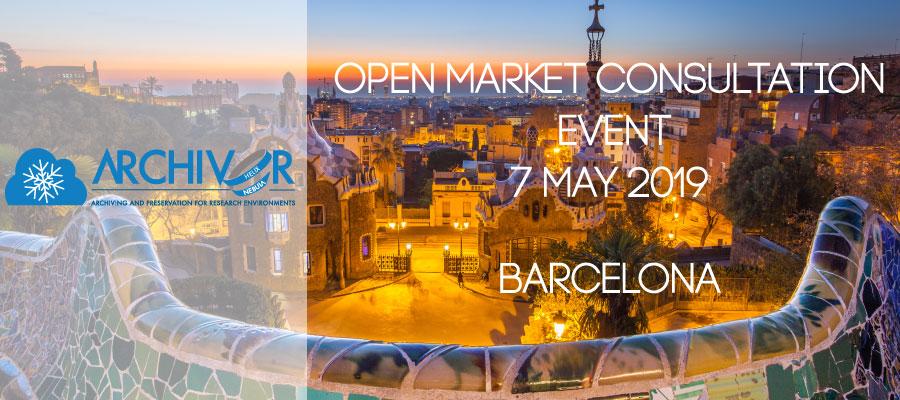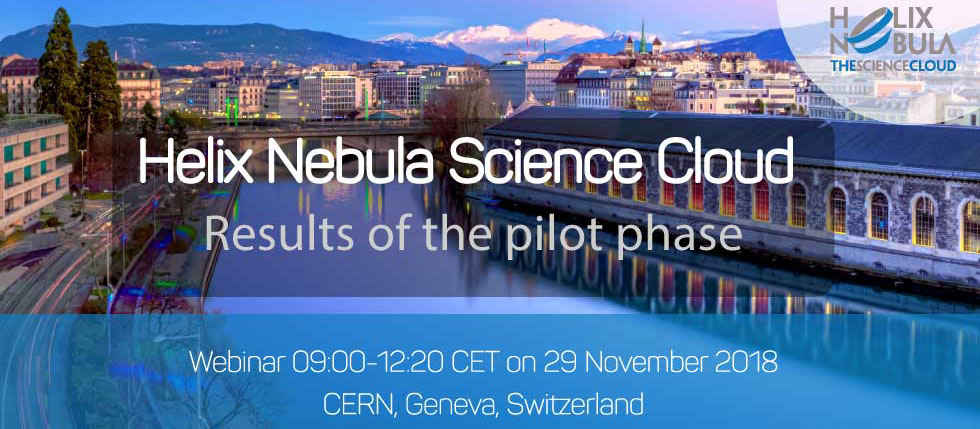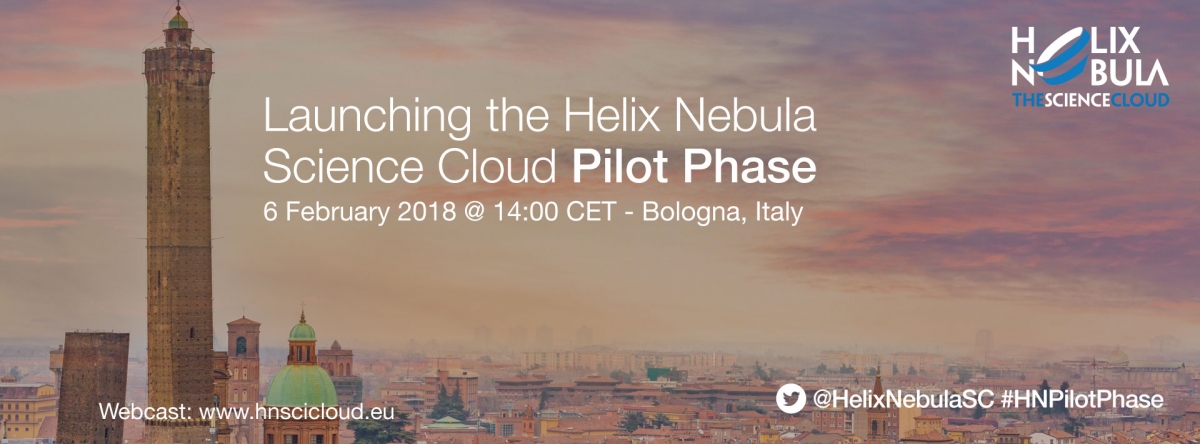In November 2016, 4 Consortia won the HNSciCloud Pre-Commercial Procurement (PCP) tender for the establishment of a European hybrid cloud platform to support the deployment of high-performance computing and big-data capabilities for scientific research.
After the submission of their designs, 3 out of the 4 consortia were selected to build the prototypes.
On the 6th of February 2018 the consortia that will move from the Prototype to the Pilot Phase of the HNSciCloud PCP will be announced.
If you are a potential user of the hybrid cloud platform or you are simply interested in understanding more about the pilots that will be deployed, mark the date in your agenda and follow the live webcast of the event directly from our website www.hnsicloud.eu.
AGENDA
14:00 – Pilot phase Award Ceremony – INFN Introduction and welcome
14:10 – Innovation Procurement and the Open Science Cloud as drivers of Europe’s Digital Single Market – Dr. Dirk Van Rooy (DG CNECT)
14:20 – Overview of HNSciCloud – CERN
14:35 – Pilot phase Award Ceremony – Contractor 1
14:55 – Pilot phase Award Ceremony – Contractor 2
15:15 – HNSciCloud pilot phase – INFN
15:30 – EOSC in practice – Silvana Muscella (chair EOSC HLEG)
15:45 – Early adopter group and closing of webinar- CERN
If you want more information about the event please do not hesitate to contact us at info@hnscicloud.eu









